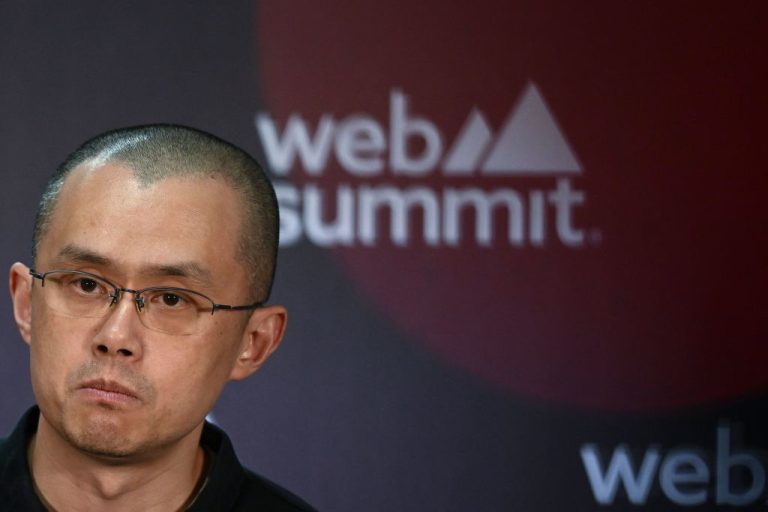The Commodity and Futures Trading Commission (CFTC) uncorked a lawsuit against Binance, the world’s largest and most oblique digital currency exchange, the morning of Monday, March 27.
At the root of the 74-page pleadings is the company’s alleged intrinsic personal ties to Zhao Changpeng, known colloquially in the crypto community as “CZ,” and the fact that Binance is alleged to have targeted U.S. customers despite publicly claiming to block or deny service to the world’s most lucrative market on regulatory grounds.
The CFTC states that Zhao, who is also a Canadian citizen, launched Binance in 2017 out of Shanghai and has maintained control of all operations at all times, including directly paying for the platform’s Amazon Web Services account with his personal credit card.
MORE ON DIGITAL CURRENCY
- Bitcoin in the Jaws of Communist China
- Europe’s Central Bank Declares War on Bitcoin
- UK Police Raid Suspected Cannabis Grow-op, Find Bitcoin Mine Instead
- Citing Energy Crises, More Countries Are Banning Cryptocurrency Activity and Mining
Zhao is allegedly so central to the organization’s operations that his personal approval was required for a $60 office expense during a month the exchange made $700 million in revenue, the filings state.
The suit alleges that in August of 2020 alone, Binance collected $63 million in fees from derivatives trading, a figure that went astronomical to $1.14 billion just 9 months later in May of 2021.
Success
You are now signed up for our newsletter
Success
Check your email to complete sign up
The Commission claims that 16 percent of Binance’s customers were located in the U.S. in August of 2020 while Zhao and former Chief Compliance Officer Samuel Lim, a co-defendant in the suit located in Singapore, are alleged to have regarded collecting fees from American customers—including institutional and VIP clients—as more important than complying with U.S. law.
Lim allegedly paraphrased CZ as calling the choice “a biz decision.”
An internal Binance financial reporting package obtained by the CFTC also displays a graph showing that the U.S. market is ahead only of communist China, which hosted 14 percent of the company’s user base.
A concern for regulators is that Binance does not make its office location known, cycling operations between locations in Singapore, Dubai, Tokyo, and Malta. The CFTC claims that Zhao regards Binance’s operations as wherever his physical location is at any time.
Binance has also instructed its U.S. clients to utilize a VPN to obscure their geographical location while also allowing “customers that had not submitted proof of their identity and location to continue to trade on the platform long after announcing such conduct was prohibited.”
The exchange also “directed VIP customers with ultimate beneficial owners, key employees who control trading decisions, trading algorithms, and other assets all located in the United States” to open “accounts under the name of newly incorporated shell companies to evade Binance’s compliance controls,” the CFTC alleges.
Another issue the CFTC takes with Binance and Zhao is allegations that Zhao “directly or indirectly” owns 300 accounts on the platform, which the Commission calls “house accounts” that trade against Binance clients, in addition to two accounts under Zhao’s personal name.
Pleadings allege that Binance does not disclose to its customers that the house is trading against them under the accounts via a “quant desk.”
But the most pointed aspect of the suit are concerns the CFTC has surrounding Binance’s house cryptocurrency “BNB,” which it mints out of thin air and then sells to customers to hold in exchange for a reduction in trading fees, and the company’s house stablecoin “BUSD,” which Binance claims issuances of are backed by US dollar deposits.
Moreover, Binance employs at least 60 U.S. citizens in addition to a network of “Binance Angels,” a title for influencers commissioned to recruit new customers in exchange for swag and event invitations.
Customers running cryptocurrency through Binance, which was fraught with either suspect or absent Know Your Client (KYC) legislative compliance, were often known to be suspicious by the company.
One such account documented in internal company communications in July of 2020 was said to have laundered at least $5 million in digital currency that Binance knew was “indirectly sourced from questionable services.”
Employees discussed informing the client that although the account would be terminated, a new one could be created and they should be sure to “be careful with his flow of funds, especially from darknet like hydra [sic].”
“Hydra” likely refers to a marketplace operating on the darknet connected to Russian organized crime, according to April of 2022 reporting on its closure by CNBC.
Germany’s federal police seized $25 million in Bitcoin from a single wallet the platform controlled, the report stated, adding that Hydra processed more than $5 billion worth of digital currency transactions since 2015.
The platform not only trafficked the hardest illicit narcotics, but also stolen identities, hacking tools, and “money laundering services,” CNBC stated.
“Offboarding” an account was seen as “bad in cz’s eyes,” according to employee communications.
In 2019, Zhao was quoted as stating during a company meeting that he was well aware Binance’s operations were violating United States law, “[U.S. regulators] can’t make a special case for us. We are already doing a lot of things that are obviously not in line with the United States,” he added.
CFTC Chair Rostin Behnam said in a statement announcing the civil suit, “For years, Binance knew they were violating CFTC rules, working actively to both keep the money flowing and avoid compliance. This should be a warning to anyone in the digital asset world that the CFTC will not tolerate willful avoidance of U.S. law.”
Reporting from Fortune on March 27 on the suit stated that Zhao and his company have been in damage control, “Binance has sought to shed its rogue reputation, hiring figures in the U.S. such as former Edelman executive Patrick Hillmann to serve as chief strategy officer…”
















